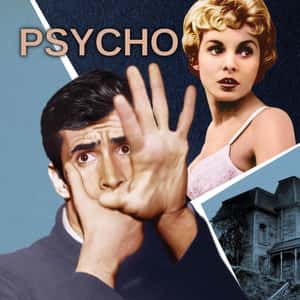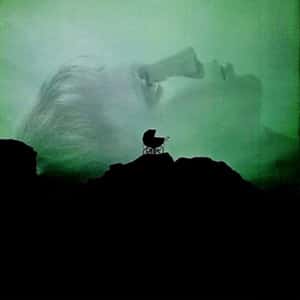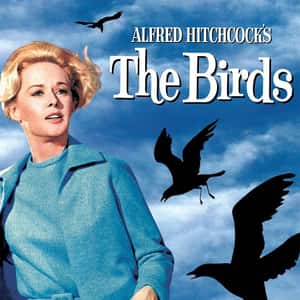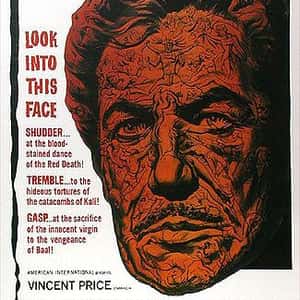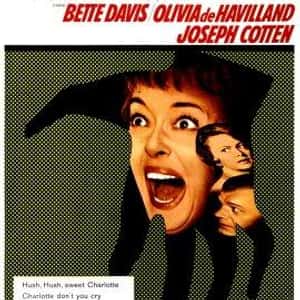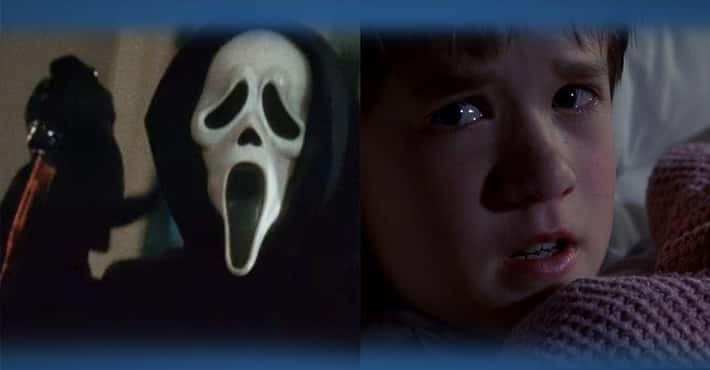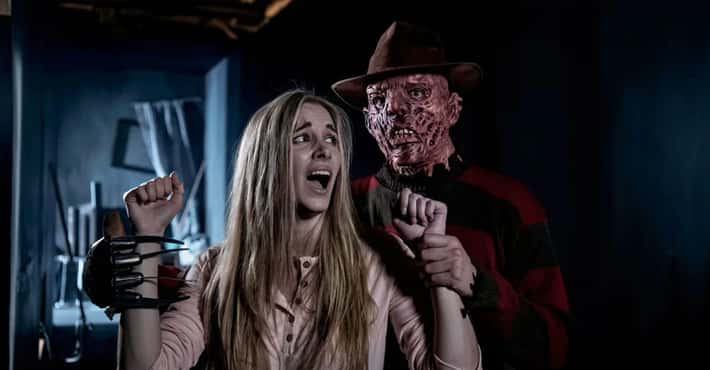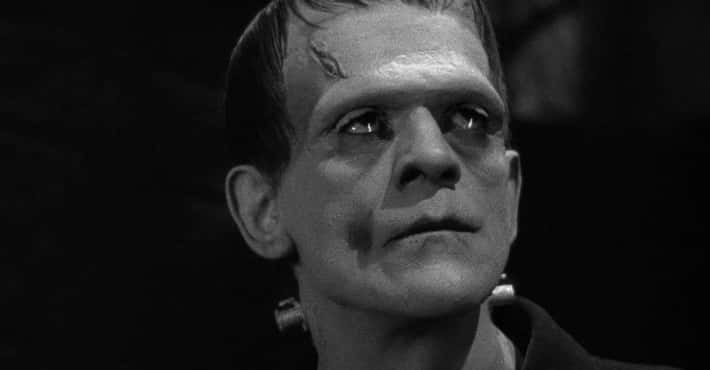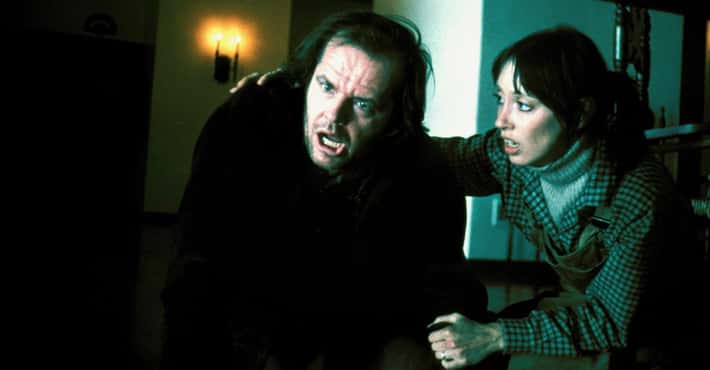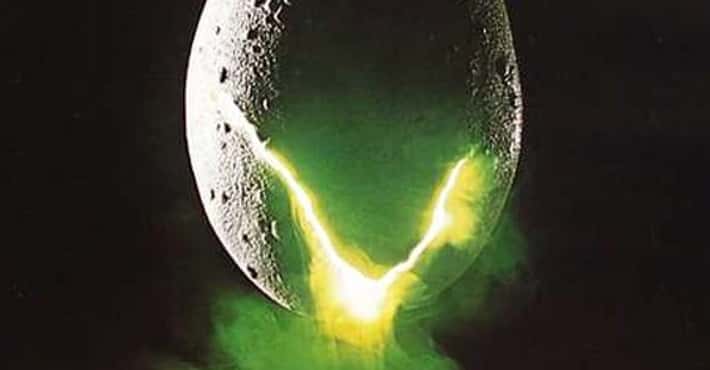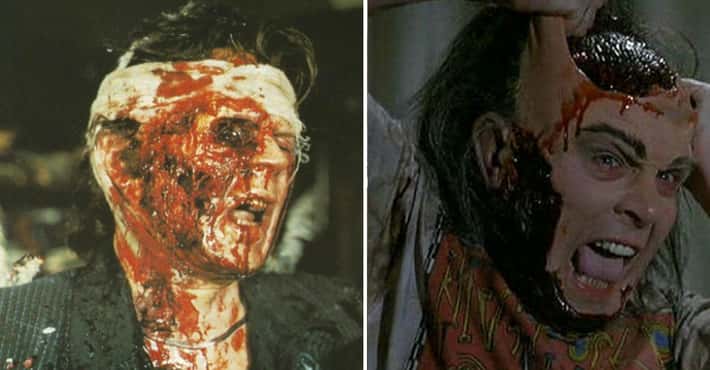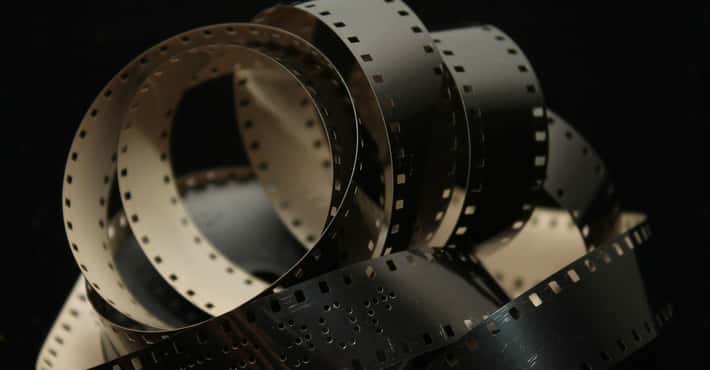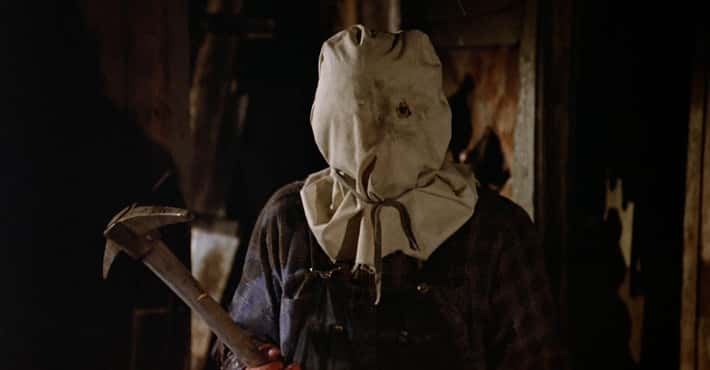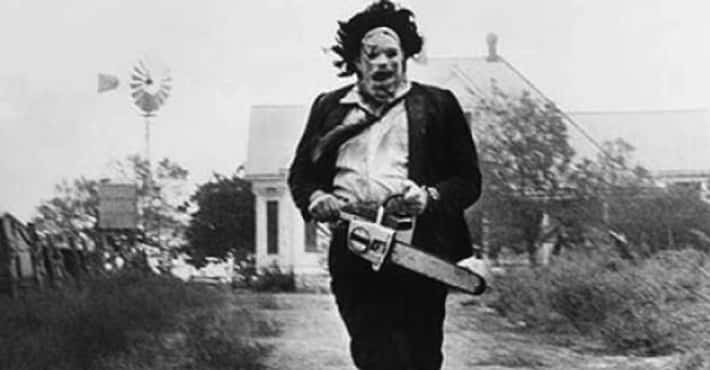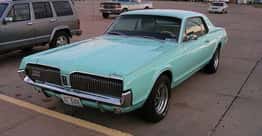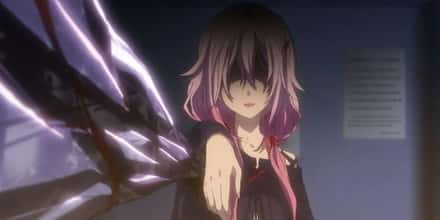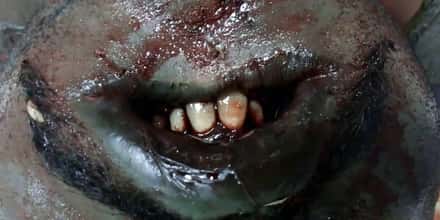The 75 Best '60s Horror Movies, Ranked
The best ‘60s horror movies were soaked in experimentation, paranoia, and outstanding accomplishment. The horror films of the '60s saw the release of some of the most important horror films of all time. The best '60s horror movies are among the greatest classic horror movies of all time, the scariest movies of all time, and are just films every die-hard horror fan needs to see.
Whether you’re in the mood for more of a realistic thriller, a gory shockfest, or a movie that was based on true historic events, there’s sure to be a horror movie on this list that will satisfy your needs and get you good and scared.
Vote up the best 60s horror films, and be sure to check the best horror movies of the 21st century!
- Alfred Hitchcock
For Fans Of: Psychological Thriller, Suspense, Horror
Why These Movies Are Worth Going Back to the 60's: Alfred Hitchcock’s masterpiece, Psycho, not only redefined the horror genre but also introduced the concept of a psychological thriller to 1960s cinema. The film showcases Hitchcock's innovative storytelling and iconic visual style, making it an essential watch for fans of classic cinema. Its chilling performances, notably by Anthony Perkins as Norman Bates and Janet Leigh as Marion Crane, set a new standard for the portrayal of disturbed characters in horror films.In the chilling classic Psycho, Marion Crane (Janet Leigh) absconds with stolen cash, seeking solace at the remote Bates Motel. The proprietor, Norman Bates (Anthony Perkins), is a peculiar young man dominated by his puritanical mother. Marion's disappearance triggers an investigation led by her sister, Lila (Vera Miles), and boyfriend, Sam Loomis (John Gavin). Directed masterfully by Alfred Hitchcock, this iconic horror-thriller won several awards, including an Academy Award nomination for Leigh's performance. Psycho's suspense-filled plot twists and haunting score have left an indelible mark on cinematic history.More Psycho- #9 of 252 onThe 200+ Best Psychological Thrillers Of All Time
- #332 of 769 onThe Most Rewatchable Movies
- #7 of 397 onThe Best Horror Movies Of All Time
- Karl Hardman, Russell Streiner
For Fans Of: Zombie Horror, Apocalyptic Horror, Cult Classics
Why These Movies Are Worth Going Back to the 60's: George A. Romero's Night of the Living Dead stands as a landmark in both horror and independent filmmaking, delivering chills that remain effective today in its story of flesh-eating zombies on the rampage. Groundbreaking in its exploration of social dynamics during a crisis, this low-budget gem demonstrates how 1960s filmmakers could create truly terrifying experiences with limited resources. It revolutionized zombie narratives within popular culture and established many tropes that continue to influence modern horror films.In the chilling film, Night of the Living Dead, an unexpected menace threatens the safety of rural Pennsylvania. Directed by George A. Romero, this horror classic brings together a motley crew of strangers in a farmhouse. Among them, Ben (Duane Jones) emerges as a leader, attempting to strategize their survival against an onslaught of reanimated corpses, known as zombies. As the night wears on, tensions within the group escalate almost as horrifyingly as the relentless external threat. This black-and-white masterpiece is not only a pioneering film in the zombie genre but also a stark commentary on societal norms and prejudices of its time.- #27 of 397 onThe Best Horror Movies Of All Time
- #158 of 278 on'Old' Movies Every Young Person Needs To Watch In Their Lifetime
- #51 of 167 onThe Greatest '60s Movies, Ranked
- William Castle
For Fans Of: Psychological Horror, Supernatural Horror, Drama
Why These Movies Are Worth Going Back to the 60's: Roman Polanski’s atmospheric tale of paranoia and occultism, Rosemary's Baby, delves into themes that were groundbreaking for cinema audiences at the time. The film’s masterful use of suspense and psychological terror creates an unsettling atmosphere that resonates throughout its runtime despite having few overtly frightening moments. With Mia Farrow’s unforgettable performance as Rosemary Woodhouse and Polanski’s directorial prowess, this classic film showcases sinister storytelling at its finest.In Rosemary's Baby, Rosemary Woodhouse (Mia Farrow) and her struggling actor husband, Guy (John Cassavetes), move into an old New York City apartment. Their eccentric neighbors, Roman and Minnie Castevet (Sidney Blackmer and Ruth Gordon), soon become overly involved in their lives. After Rosemary becomes mysteriously pregnant, she grows increasingly paranoid about the safety of her unborn child. This film, a chilling blend of psychological thriller and horror, directed by Roman Polanski, won Ruth Gordon an Academy Award for Best Supporting Actress. It continues to unsettle audiences with its haunting narrative and suspenseful build-up.More Rosemary's Baby- #47 of 252 onThe 200+ Best Psychological Thrillers Of All Time
- #631 of 769 onThe Most Rewatchable Movies
- #97 of 375 onThe Best Movies Based On Books
- Alfred Hitchcock
For Fans Of: Thriller, Horror, Disaster Film, Mystery
Why These Movies Are Worth Going Back to the 60's: Another iconic offering from Alfred Hitchcock, The Birds, sees everyday creatures turned into menacing attackers in this chilling adaptation of Daphne du Maurier’s short story. The film's innovative special effects and suspenseful pacing highlight Hitchcock's mastery of tension-building, while its sudden shift from mundane to terrifying situations demonstrates the director's ability to catch audiences off guard. As a cornerstone of 1960s horror, The Birds remains an essential watch for anyone interested in exploring the roots of modern cinematic frights.In Hitchcock's 1963 suspenseful classic, The Birds, Melanie Daniels (Tippi Hedren), a socialite from San Francisco, ventures into the small coastal town of Bodega Bay. She's there to deliver a pair of lovebirds to Mitch Brenner (Rod Taylor), a man she's taken an interest in. But soon after her arrival, the town is besieged by inexplicably aggressive bird attacks. The once peaceful locality descends into chaos and fear as every corner becomes a potential battleground against these avian assailants. Jessica Tandy plays Lydia Brenner, Mitch's apprehensive mother. Suzanne Pleshette appears as Annie Hayworth, Mitch's former lover and the local school teacher. Amidst this unpredictable terror, human relationships are tested and survival instincts override all else. The film was nominated for an Academy Award for its impressive special effects.More The Birds- #392 of 769 onThe Most Rewatchable Movies
- #56 of 397 onThe Best Horror Movies Of All Time
- #48 of 375 onThe Best Movies Based On Books
- Robert Aldrich
For Fans Of: Psychological Horror, Thriller, Drama
Why These Movies Are Worth Going Back to the 60's: A precursor to the psychological thriller genre, What Ever Happened to Baby Jane? explores sibling rivalry and madness through powerhouse performances by Bette Davis and Joan Crawford. It expertly captures the twisted reality of Hollywood’s Golden Age, as well as themes of aging and fading stardom that resonate to this day. Directed by Robert Aldrich, this chilling drama showcases how psychological torment was a prevalent source of horror in 1960s cinema.Jane Hudson (Bette Davis) is an aging child star left to care for her wheelchair-bound sister Blanche (Joan Crawford), also a former child actress. Stuck living together in a mansion in old Hollywood, Blanche plots to get even with Jane for the car crash that left her crippled years earlier. But Jane is desperate to keep Blanche imprisoned as she plans a new rise to fame, and tries to hide Blanche's existence from doctors, visitors and neighbors while she devises a way to get rid of her sister.- #11 of 49 onThe Top 45+ Films Released In 1962
- #75 of 252 onThe 200+ Best Psychological Thrillers Of All Time
- #175 of 397 onThe Best Horror Movies Of All Time
- Robert Wise
For Fans Of: Psychological Horror, Supernatural Horror, Mystery
Why These Movies Are Worth Going Back to the 60's: Robert Wise’s The Haunting exemplifies atmospheric storytelling with its adaptation of Shirley Jackson’s classic novel, centered around a group investigating paranormal occurrences at Hill House. The film masterfully creates terror through suggestion and sound design rather than relying on explicit visual scares, proving that what is unseen can be just as frightening as what is shown on screen. Its eerie atmosphere influenced generations of haunted house films and effectively expanded upon existing tropes within 1960s horror cinema.Trapped within the eerie confines of Hill House, Eleanor Vance (Julie Harris) is a participant in a paranormal investigation led by Dr. John Markway (Richard Johnson). The supernatural thriller The Haunting, directed by Robert Wise, weaves a tale of psychological terror as Eleanor finds herself increasingly drawn to the mansion's mysterious past and its deceased inhabitants. As the investigation unfolds, so does the house's chilling grip on Eleanor's psyche, escalating towards an unnerving climax. Notably, Claire Bloom portrays Theodora, a character significant for her implied homosexuality - a bold move for cinema in 1963.More The Haunting- #122 of 252 onThe 200+ Best Psychological Thrillers Of All Time
- #160 of 397 onThe Best Horror Movies Of All Time
- #285 of 375 onThe Best Movies Based On Books
- Ronald Kinnoch
For Fans Of: Sci-Fi Horror, Thriller, Supernatural
Why These Movies Are Worth Going Back to the 60's: Presenting a chilling tale of extraterrestrial influence on Earth, Village of the Damned taps into Cold War-era anxieties surrounding enemy infiltration and loss of control over one's own community. This British science fiction horror film explores themes such as conformity and fear-based mistrust in society while captivating viewers with its unsettling depiction of sinister, otherworldly children. Its influential premise and strong performances make it a standout example of 1960s horror cinema.One day the peaceful village of Midwich is cast into a mysterious sleep for several hours, but with no obvious consequences, until soon all the women of child-bearing age turn out to be pregnant. Their children are all born at the same time, and grow quickly into very spooky young people, with strange white-blonde hair and eerie eyes.- #187 of 397 onThe Best Horror Movies Of All Time
- #117 of 167 onThe Greatest '60s Movies, Ranked
- #8 of 18 onPretty Good Horror Movies That Make You Never Want To Be A Parent
- Jack Clayton
For Fans Of: Gothic Horror, Supernatural, Psychological Drama
Why These Movies Are Worth Going Back to the 60's: Adapted from Henry James' The Turn of the Screw, The Innocents showcases atmospheric horror in a Gothic setting with its story revolving around a governess caring for two potentially possessed children. Directed by Jack Clayton and featuring a screenplay co-written by Truman Capote, this psychological thriller is celebrated for its eerie ambiance and striking visuals that capture the essence of haunted house films prevalent during the 1960s. Deborah Kerr’s mesmerizing performance as Miss Giddens completes this haunting tale that still resonates with audiences today.Based on the Henry James story "The Turn of the Screw," a psychological thriller about a woman who takes a governess job for two orphans in a Victorian home. She begins to see what she believes are ghosts and suspects the children's bizarre behavior is the result of supernatural powers.More The Innocents- #338 of 397 onThe Best Horror Movies Of All Time
- #95 of 168 onThe 160+ Scariest Psychological Thrillers
- #19 of 20 on20 Shocking Horror Movie Endings That Took You by Surprise
- Roger Corman
For Fans Of: Supernatural Horror, Period Drama, Thriller
Why These Movies Are Worth Going Back to the 60's: Another collaboration between director Roger Corman and actor Vincent Price, The Masque of the Red Death, is inspired by another Edgar Allan Poe short story about an evil prince who hosts a lavish ball while his kingdom is ravaged by plague. This visually stunning film captures Gothic atmosphere through opulent set design and vivid Technicolor cinematography that highlights both beauty and decay. As one of many successful Poe adaptations during this era, it stands as a prime example of how 1960s horror could effectively convey the dark themes and uneasy tone present in classic literature.This film is a 1964 British horror film directed by Roger Corman and starring Vincent Price. The story follows a prince who terrorizes a plague-ridden peasantry while merrymaking in a lonely castle with his jaded courtiers. The screenplay, written by Charles Beaumont and R. Wright Campbell, was based upon the 1842 short story of the same name by American author Edgar Allan Poe, and incorporates a sub-plot based on another Poe tale, Hop-Frog. - Roger Corman
For Fans Of: Gothic Horror, Period Drama, Mystery
Why These Movies Are Worth Going Back to the 60's: Roger Corman's adaptation of Edgar Allan Poe's The Pit and the Pendulum demonstrates how classic literature could inspire chilling cinematic experiences during the 1960s. The film features Vincent Price in one of his most memorable roles as Nicholas Medina, whose descent into madness is both sympathetic and terrifying. With its lush production design, moody atmosphere, and taut storytelling, The Pit and the Pendulum exemplifies Corman's talent in bringing macabre tales to life on screen.Elizabeth Barnard Medina (Barbara Steele) has died in the prime of life, and her brother, Francis (John Kerr), wants to know why. Elizabeth's husband, Nicholas (Vincent Price), and her doctor offer differing explanations, but when Francis learns that Nicholas' mother may have been buried alive, he begins to wonder if his sister met the same fate. And when he comes to believe that Elizabeth's spirit wanders about Nicholas' castle, Francis investigates -- and is stunned by what he finds.- #12 of 15 onThe 15 Most Horrifying Moments In Edgar Allan Poe's Stories
- #52 of 65 onThe 60+ Best Best Giallo Films
- #50 of 82 on80+ Great Classic Horror Movies, Ranked
- Herk Harvey
For Fans Of: Supernatural Horror, Mystery, Indie Film
Why These Movies Are Worth Going Back to the 60's: Carnival of Souls showcases innovative and surreal filmmaking that captivates viewers with its eerie, dreamlike atmosphere. Herk Harvey’s cult classic tells the story of a woman haunted by a mysterious figure after surviving a car accident, blending horror with existential themes. With its haunting visuals, ethereal organ score, and mesmerizing performance from Candace Hilligoss, this film remains an enduring example of experimental cinema in the 1960s.Mary Henry (Candace Hilligoss) ends up the sole survivor of a fatal car accident through mysterious circumstances. Trying to put the incident behind her, she moves to Utah and takes a job as a church organist. But her fresh start is interrupted by visions of a fiendish man (Herk Harvey). As the visions begin to occur more frequently, Mary finds herself drawn to the deserted carnival on the outskirts of town. The strangely alluring carnival may hold the secret to her tragic past.More Carnival of Souls- #12 of 49 onThe Top 45+ Films Released In 1962
- #149 of 167 onThe Greatest '60s Movies, Ranked
- #11 of 41 onThe 100+ Best Movies Streaming On The Criterion Channel
- Anthony Nelson Keys
For Fans Of: Gothic Horror, Vampire Film, Classic Horror
Why These Movies Are Worth Going Back to the 60's: Hammer Film Productions revitalized Gothic horror during the 60s with films like Dracula: Prince of Darkness, which marked Christopher Lee's return as cinema's most menacing vampire. The film captures the grandeur and intrigue of classic horror while effectively building tension through atmospheric settings and gothic imagery. Its vibrant technical aspects, such as rich color schemes and dynamic cinematography, make it an essential watch for fans of both classic monster movies and iconic British horror.Dracula: Prince of Darkness is a 1966 British horror film directed by Terence Fisher. The film was photographed in Techniscope by Michael Reed, designed by Bernard Robinson and scored by James Bernard. It stars Christopher Lee, Francis Matthews, and Barbara Shelley. - Roger Corman
For Fans Of: Gothic Horror, Mystery, Psychological Drama
Why These Movies Are Worth Going Back to the 60's: Another Edgar Allan Poe adaptation directed by Roger Corman, House of Usher, is notable for popularizing Corman’s Poe Cycle series in collaboration with actor Vincent Price during this era. Featuring striking visual effects that intensify its tale of family curses and psychological terror, this groundbreaking film demonstrates how innovative storytelling techniques could elevate traditional horror tales into something unique. Corman's stylistic approach merges artistry with genre thrills, making it a quintessential piece in any exploration of 1960s horror cinema.Based on the classic story "The Fall of the House of Usher" by Edgar Allan Poe and directed by legendary filmmaker Roger Corman, this thriller features Vincent Price as Roderick Usher, a man who believes his family to be cursed by incurable madness. So sure is he of his family's doom, that when his sister Madeline (Myrna Fahey) announces her engagement to Philip Winthrop (Mark Damon), Roderick will stop at nothing to prevent their marriage and keep the Usher bloodline from continuing. - Robert L. Lippert
For Fans Of: Post-Apocalyptic Horror, Sci-Fi, Vampire Film
Why These Movies Are Worth Going Back to the 60's: The Last Man on Earth captures apocalyptic dread through its story of a lone survivor (played by Vincent Price) navigating a world overrun by zombie-like creatures. Adapted from Richard Matheson’s seminal novel I Am Legend, this film showcases how science fiction and horror could blend seamlessly to create powerful commentaries on isolation, despair, and humanity in crisis. Its stark atmosphere and compelling portrayal of survival against all odds make it an essential piece of 1960s horror cinema.The Last Man on Earth is a 1964 science fiction horror film based on the Richard Matheson 1954 novel I Am Legend. The film was directed by Ubaldo Ragona and Sidney Salkow, and stars Vincent Price. The script was written in part by Matheson, but he was dissatisfied with the result and chose to be credited as "Logan Swanson". William Leicester, Furio M. Monetti, and Ubaldo Ragona were the other writers. It was filmed in Rome, Italy, with some location shots taken at Esposizione Universale Roma. It was released theatrically in the United States by American International Pictures and the UK in 1966. In the 1980s the film fell into the public domain. MGM Home Video, the current owners of the AIP film catalog, released a digitally remastered widescreen print on DVD in September 2005.- Dig Deeper...The Best Characters on The Last Man on Earth, Ranked
- #55 of 125 onThe Top 100+ Zombie Movies Of All Time
- #27 of 49 onThe Best Horror Movies About Virus Outbreaks
- Salvatore Billitteri, Paolo Mercuri
For Fans Of: Supernatural Horror, Anthology Film, Period Drama
Why These Movies Are Worth Going Back to the 60's: Italian director Mario Bava’s Black Sabbath is an anthology film comprising three chilling tales, each showcasing Bava's signature visual style and skill at building suspense. The film’s atmospheric cinematography and inventive use of color make it a standout example of European horror filmmaking during the 1960s. Its influence can be felt throughout the genre, having inspired not only other films but also the name of one of the most iconic heavy metal bands in music history.Black Sabbath is a 1963 Italian-French horror film directed by Mario Bava. The film is centered on three separate tales that have an introduction and conclusion from Boris Karloff. The film stars an international cast in three short stories. The first, titled "The Telephone", involves Suzy who continually receives threatening telephone calls from an unseen stalker. The second is "The Wurdulak", where a man named Gorca returns to his family after claiming to have slain a Wurdulak, an undead creature who attacks those that it had once loved. - Mel Ferrer
For Fans Of: Psychological Thriller, Crime Drama, Home Invasion Film
Why These Movies Are Worth Going Back to the 60's: Wait Until Dark is an edge-of-your-seat thriller that combines horror with crime drama as Audrey Hepburn plays a blind woman terrorized by home intruders seeking a hidden treasure. With its taut direction from Terence Young and excellent performances from Hepburn and Alan Arkin, this adaptation of Frederick Knott’s play showcases how effective tension-building could elevate even simple premises into cinematic masterpieces during this era. It remains an impressive example of psychological thriller storytelling that evokes fear without relying solely on supernatural elements.After a flight back home, Sam Hendrix (Efrem Zimbalist Jr.) returns with a doll he innocently acquired along the way. As it turns out, the doll is actually stuffed with heroin, and a group of criminals led by the ruthless Roat (Alan Arkin) has followed Hendrix back to his place to retrieve it. When Hendrix leaves for business, the crooks make their move -- and find his blind wife, Susy (Audrey Hepburn), alone in the apartment. Soon, a life-threatening game begins between Susy and the thugs.More Wait Until Dark- #160 of 252 onThe 200+ Best Psychological Thrillers Of All Time
- #44 of 81 onThe 75+ Best Whodunit Murder Mystery Movies
- #65 of 168 onThe 160+ Scariest Psychological Thrillers
- Robert Aldrich
For Fans Of: Psychological Horror, Southern Gothic, Drama
Why These Movies Are Worth Going Back to the 60's: Reuniting Robert Aldrich with Bette Davis after their successful collaboration in What Ever Happened to Baby Jane?, Hush… Hush, Sweet Charlotte is another Southern Gothic thriller featuring secrets, betrayal, and murder. The film boasts an all-star cast with Olivia de Havilland, Joseph Cotten, and Agnes Moorehead delivering chilling performances alongside Davis in a story full of twists and turns. Its atmospheric settings and exploration of complex character relationships exemplify the psychological horror prevalent in 1960s cinema.Hush... Hush, Sweet Charlotte is a 1964 American thriller film directed and produced by Robert Aldrich, and starring Bette Davis, Olivia de Havilland, Joseph Cotten, and Agnes Moorehead, as well as Mary Astor in her final film. The movie was adapted for the screen by Henry Farrell and Lukas Heller, from Farrell's unpublished short story, "What Ever Happened to Cousin Charlotte?" It received seven Academy Award nominations. - Jules Borkon
For Fans Of: Psychological Horror, Medical Drama, Mystery
Why These Movies Are Worth Going Back to the 60's: French director Georges Franju's haunting Eyes Without a Face tells the story of a surgeon who resorts to kidnapping and surgical experimentation in an effort to restore his disfigured daughter’s beauty. This boundary-pushing film combines art-house aesthetics with elements of body horror and suspense, creating a unique viewing experience that has influenced countless filmmakers since its release. Acclaimed for its cinematography, atmosphere, and unforgettable imagery, it remains an essential example of innovative horror cinema from the 1960s.Dr. Génessier (Pierre Brasseur) is riddled with guilt after an accident that he caused disfigures the face of his daughter, the once beautiful Christiane (Édith Scob), who outsiders believe is dead. Dr. Génessier, along with accomplice and laboratory assistant Louise (Alida Valli), kidnaps young women and brings them to the Génessier mansion. After rendering his victims unconscious, Dr. Génessier removes their faces and attempts to graft them on to Christiane's.More Eyes Without a Face- #28 of 97 onThe Best French Movies That Are Absolute Masterpieces
- #156 of 167 onThe Greatest '60s Movies, Ranked
- #62 of 425 onThe Greatest Movies in World Cinema History
- Sy Bartlett
For Fans Of: Psychological Thriller, Crime Drama, Suspense
Why These Movies Are Worth Going Back to the 60's: J. Lee Thompson's Cape Fear showcases masterful storytelling through its tale of vengeance as Robert Mitchum’s sinister ex-convict stalks Gregory Peck’s lawyer character and his family. With its tension-filled narrative infused with themes such as morality, justice, and fear, this thriller demonstrates how nuanced character studies could create genuinely unnerving cinematic experiences during this era. Its iconic score by Bernard Herrmann paired with powerful performances from Mitchum and Peck make Cape Fear an unmissable classic from 1960s filmmaking.After an eight-year prison sentence for rape, Max Cady (Robert Mitchum) targets Sam Bowden (Gregory Peck), one of the lawyers who sent him away. When Max finds Sam and his family, he begins a terrifying stalking spree, intending to ruin Sam's life. Desperate to protect his wife and daughter, Sam makes every effort to send Max back to jail. But when his attempts fail, Sam realizes that he must take matters into his own hands if he wants to rid his life of Max for good.More Cape Fear- #8 of 49 onThe Top 45+ Films Released In 1962
- #65 of 252 onThe 200+ Best Psychological Thrillers Of All Time
- #129 of 375 onThe Best Movies Based On Books
- Gene Gutowski
For Fans Of: Psychological Horror, Thriller, Drama
Why These Movies Are Worth Going Back to the 60's: Roman Polanski’s psychological thriller Repulsion provides an unnerving portrait of a woman's descent into madness as she becomes increasingly isolated in her apartment. The film showcases Polanski’s skill in creating suspense through expertly crafted atmosphere, innovative camera work, and a haunting performance from Catherine Deneuve. As one of the most influential films of its era, Repulsion exemplifies how 1960s cinema could explore complex themes while delivering chilling horror experiences.In Roman Polanski's first English-language film, beautiful young manicurist Carole (Catherine Deneuve) suffers from androphobia (the pathological fear of interaction with men). When her sister and roommate, Helen (Yvonne Furneaux), leaves their London flat to go on an Italian holiday with her married boyfriend (Ian Hendry), Carole withdraws into her apartment. She begins to experience frightful hallucinations, her fear gradually mutating into madness. - Louis M. Heyward, Arnold L. Miller, Philip Waddilove
For Fans Of: Historical Horror, War Drama, Gothic Horror
Why These Movies Are Worth Going Back to the 60's: Michael Reeves' Witchfinder General, also known as The Conqueror Worm, is a dark period piece set during England's witch-hunting craze that showcases Vincent Price in one of his finest roles as Matthew Hopkins. This gritty film captures the brutality of the era and critiques religious fanaticism and corruption, leading to its controversial reception upon release. Its bold storytelling approach and exploration of historical horrors make it a standout entry in 1960s cinema and a must-watch for fans of classic horror films.A disturbing tale of evil set during the English Civil War. When Matthew Hopkins is appointed Witchfinder General by the Puritans under Cromwell, he is empowered to travel the countryside with his henchmen and collect a fee for each witch from whom he extracts a confession - a policy which is exploited to the full.More Witchfinder General- #8 of 17 on17 Historical Horror Movies That Prove History Can Be Terrifying
- #38 of 47 onThe 45+ Best Movies of 1968
- #3 of 50 onThe 50 Best Horror Movies Of 1968, Ranked
- Michael Powell
For Fans Of: Psychological Thriller, Slasher Film, Drama
Why These Movies Are Worth Going Back to the 60's: Michael Powell’s controversial thriller Peeping Tom pushes boundaries with its exploration of voyeurism and obsession through its story of a serial killer who records his victims’ deaths. This groundbreaking film predates the modern slasher genre and features innovative uses of camera techniques to create an unsettling atmosphere that effectively conveys its protagonist’s twisted perspective. Its daring themes and innovative storytelling have secured its place as an influential work in the history of horror cinema.Loner Mark Lewis (Carl Boehm) works at a film studio during the day and, at night, takes racy photographs of women. Also he's making a documentary on fear, which involves recording the reactions of victims as he murders them. He befriends Helen (Anna Massey), the daughter of the family living in the apartment below his, and he tells her vaguely about the movie he is making. She sneaks into Mark's apartment to watch it and is horrified by what she sees -- especially when Mark catches her.More Peeping Tom- #281 of 397 onThe Best Horror Movies Of All Time
- #515 of 675 onThe Best Movies Roger Ebert Gave Four Stars
- #13 of 18 onUnderrated Horror Movies That Flopped At The Box Office
- Roger Corman
For Fans Of: Gothic Horror, Comedy Horror, Mystery
Why These Movies Are Worth Going Back to the 60's: Roger Corman’s The Raven delivers a unique blend of horror and comedy inspired by Edgar Allan Poe’s famous poem, boasting an ensemble cast that includes Vincent Price, Boris Karloff, and Peter Lorre. This entertaining film showcases how classic literature could be adapted to create engaging cinematic experiences while also capturing the spirit of 1960s horror with its atmospheric sets, inventive special effects, and tongue-in-cheek humor. Its offbeat charm has made it a cult favorite among fans of Poe adaptations and vintage horror cinema.Magician Erasmus Craven (Vincent Price) is still deeply depressed two years after the death of his beloved wife, Lenore (Hazel Court). One day, he's visited by Adolphus Bedlo (Peter Lorre), who has been transformed into a raven after losing a duel to Dr. Scarabus (Boris Karloff), an evil wizard. After Craven transforms Bedlo back into a human, Bedlo claims to have seen Lenore's ghost at Scarabus' castle, prompting the two to head to Scarabus' castle to seek Craven's lost love.More The Raven- #186 of 397 onThe Best Horror Movies Of All Time
- #22 of 46 onThe Best Movies About Magic
- #11 of 17 on17 Horror Adaptations That Are Nothing Like The Books They're Based On
- Lou Rusoff, Massimo de Rita
For Fans Of: Gothic Horror, Vampire Film, Supernatural Horror
Why These Movies Are Worth Going Back to the 60's: Mario Bava's gothic masterpiece Black Sunday introduces viewers to an evocative world where ancient curses and supernatural vengeance intertwine in a tale of witchcraft and terror. Bava's striking visual style combines with Barbara Steele's iconic dual performance to create an unforgettable atmosphere that would influence countless filmmakers in the years to come. With its richly detailed production design and captivating story, this film remains an essential piece of Italian horror cinema.Black Sunday is a 1960 Italian gothic horror film directed by Mario Bava, from a screenplay by Ennio de Concini, Mario Serandrei and Marcello Coscia. The film stars Barbara Steele, John Richardson, Arturo Dominici and Ivo Garrani. It was Bava's directorial debut, although he had completed several previous feature films without credit. Based very loosely on Nikolai Gogol's short story "Viy", the narrative concerns a vampire-witch who is put to an end by her own brother, only to return 200 years later to seek revenge on her descendants. - Anthony Nelson Keys
For Fans Of: Supernatural Horror, Occult Horror, Period Drama
Why These Movies Are Worth Going Back to the 60's: Hammer Film Productions' The Devil Rides Out delves into the occult with this adaptation of Dennis Wheatley's novel, which follows a group trying to save their friend from a Satanic cult. Christopher Lee steps away from his usual villainous roles to play a heroic character, demonstrating his remarkable range as an actor. The film combines atmospheric horror with action-packed sequences, making it a thrilling entry in Hammer's classic lineup of horror films during the 1960s.When the Duc de Richleau (Christopher Lee) and Rex Van Ryn (Leon Greene) arrive at a fashionable party thrown by de Richleau's protégé, Simon Aron (Patrick Mower), they soon realize that the party is in fact a gathering of a Satanic cult, led by the high priest Mocata (Charles Gray), that plans to initiate the beautiful Tanith (Nike Arrighi) that night. It's up to de Richleau and Van Ryn to defeat the devil-worshiping Mocata and save innocent young Tanith and the others from a terrible fate.More The Devil Rides Out- #26 of 55 onThe Best Horror Movies About Cults and Conspiracies
- #5 of 13 on13 Essential Hammer Horror Movies For Fans Of Fright
- #106 of 146 onThe Best Supernatural Horror Movies, Ranked
- Pat Green
For Fans Of: Gothic Horror, Mystery, Romance
Why These Movies Are Worth Going Back to the 60's: Roger Corman’s final installment in his Poe Cycle series, The Tomb of Ligeia, adapts Edgar Allan Poe’s short story into a visually striking gothic tale starring Vincent Price as a widower haunted by his deceased wife. This atmospheric film showcases Corman’s ability to craft captivating stories within limited budgets while remaining faithful to Poe’s darkly romantic vision. With its moody settings, eerie narrative, and strong performances, The Tomb of Ligeia serves as a fitting conclusion to Corman’s celebrated series.Verden Fell (Vincent Price) is shattered after the death of his lovely wife. But, after an unexpected encounter with Lady Rowena Trevanion (Elizabeth Shepherd), Fell soon finds himself married again. Nevertheless, his late wife's spirit seems to hang over the dilapidated abbey that Fell shares with his new bride. Lady Rowena senses that something is amiss and, when she investigates, makes a horrifying discovery -- learning that Fell's dead wife is closer than she ever imagined possible. For Fans Of: Sci-Fi Horror, Supernatural, Thriller
Why These Movies Are Worth Going Back to the 60's: As a sequel to Village of the Damned, Children of the Damned continues exploring themes such as conformity and fear-based mistrust in society through another chilling tale about supernaturally gifted children threatening humanity. This British science fiction horror film delves into Cold War-era anxieties while maintaining the eerie atmosphere and unsettling nature of its predecessor. Its compelling story and performances make it an essential watch for fans of 1960s horror cinema.The United Nations conducts a global survey on child development, identifying six children with exceptional intelligence. All were born under mysterious circumstances, with the mothers claiming they were conceived without a father. Brought to London to be studied, the children escape to an abandoned church. Alarmed by the children's telekinetic powers, the government prepares to destroy them, while psychologist Col. Tom Lewellin (Ian Hendry) tries to convince the authorities to spare them.- Anthony Hinds
For Fans Of: Gothic Horror, Vampire Film, Romance
Why These Movies Are Worth Going Back to the 60's: Hammer Film Productions' The Brides of Dracula adds a fresh spin on vampire lore with this atmospheric tale that sees Peter Cushing reprising his role as Van Helsing in a battle against a sinister bloodsucker and his deadly brides. The film's lush production design, vivid color palette, and dramatic storytelling exemplify the unique qualities that defined Hammer’s horror output during this era. As part of Hammer's iconic series of Gothic horror films, The Brides of Dracula remains an engaging entry in the genre's rich history.The Brides of Dracula is a 1960 British Hammer Film Productions Horror film directed by Terence Fisher. It stars Peter Cushing as Van Helsing; David Peel as Baron Meinster, a disciple of Count Dracula; Yvonne Monlaur as Marianne Danielle; Andrée Melly as her roommate, Gina; Marie Devereux as a village girl; and Martita Hunt as the Baroness Meinster. The film is a sequel to Hammer's original Dracula, though the vampires possess abilities denied to vampires in the previous film, much like those in the original novel. Alternative working titles were Dracula 2 and Disciple Of Dracula. Dracula does not appear in the film and is mentioned only twice, once in the prologue, once by Van Helsing. Shooting began for The Brides of Dracula on 16 January 1960 at Bray Studios. It premièred at the Odeon, Marble Arch on 6 July 1960. - Roger Corman
For Fans Of: Comedy Horror, Musical, Science Fiction
Why These Movies Are Worth Going Back to the 60's: Roger Corman’s cult classic The Little Shop of Horrors offers an entertaining blend of comedy and horror with its bizarre story about a man-eating plant that wreaks havoc on its hapless owner. This low-budget gem showcases how inventive storytelling could transcend limited resources, making the most out of its darkly humorous premise and eccentric characters played by actors like Jack Nicholson in one of his earliest roles. Its enduring appeal has led to numerous stage adaptations, including a successful Broadway musical and subsequent film adaptation.Seymour Krelboin (Jonathan Haze) works in the Skid Row flower shop owned by Mr. Mushnik (Mel Welles). In his spare time, Seymour creates a new plant species he names Audrey Junior in honor of his girlfriend Audrey (Jackie Joseph). Audrey Junior begins speaking and demands to be fed human blood and flesh, convincing Seymour to kill a railroad detective, a sadistic dentist and a trollop. Seymour's guilt over the deaths forces him to confront Audrey Junior in a final confrontation.- #208 of 397 onThe Best Horror Movies Of All Time
- #128 of 167 onThe Greatest '60s Movies, Ranked
- #13 of 51 onThe 50+ Best Movies In Public Domain
For Fans Of: Gothic Horror, Vampire Film, Supernatural Horror
Why These Movies Are Worth Going Back to the 60's: Christopher Lee returns as the infamous Count Dracula in Hammer Film Productions' stylish sequel, Dracula Has Risen from the Grave. Directed by Freddie Francis, this visually striking film delivers both suspenseful chills and gothic romance as it continues exploring themes central to vampire mythology. With its atmospheric cinematography, captivating narrative, and Lee's iconic portrayal of the titular character, this film stands as a memorable entry in 1960s horror cinema.Dracula Has Risen from the Grave is a 1968 British horror film directed by Freddie Francis for Hammer Films. It stars Christopher Lee as Count Dracula, with support from Rupert Davies, Veronica Carlson, Barry Andrews, Barbara Ewing, Ewan Hooper and Michael Ripper. This was the fourth entry in Hammer's Dracula series, and the third to feature Christopher Lee as the titular vampire.


